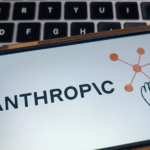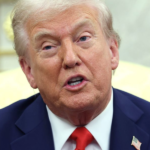Meanwhile Ross, President Trump’s former commerce secretary, is concerned that the administration’s Achilles’ heel may prove to be its confidence—potentially spurred by quickly signing framework deals with the likes of the U.K. and China.
He told Fortune in an exclusive interview: “The very fact that they’ve made as much progress as they have shows the basic power of the U.S. to get people to come around.
“In fact my one fear is that if our government feels too chesty with their progress, they may overplay the hand and get to levels that are hard—maybe even impossible—for the other countries to give in. That’s my biggest worry right now, because it’s easy to get carried away with early successes.”
As well as a deal with the U.K. being reached and a framework with China, positive signals are also coming out of talks with India and Japan.
“What I think is very important [is] … even though they’ve taken initiatives with some 70-odd countries, in reality, there are only about four or five that make a lot of difference because they’re the ones that move the needle, and [Trump] seems to be doing pretty well,” Secretary Ross added.
“With, I would say, the exception of the EU … It’s very difficult for the EU to make trade concessions because it‘s not really one entity. You’ve got the 27 member states, and each one of those has a different set of objectives, but each one has veto power, so it’s very tough to get a deal with the EU.”
When asked by Fortune which region may lead to a stalemate in talks, Secretary Ross said: “The EU is definitely a possibility, simply because it’s hard for them to take a united front.
“But someone like a Vietnam, on whom he has imposed huge tariffs … That one frankly surprised me a little bit in that the reason our trade deficit suddenly shot up with Vietnam is there was a lot of factory movement from China to Vietnam.”
Keeping the European Union close in particular is a key concern of Dimon’s, on account of its history and the potential fragmentation of the bloc.
“This is going to be hard, but our country’s goal should be to help make European nations stronger and keep them close. If Europe’s economic weakness leads to fragmentation, the landscape will look a lot like the world before World War II,” he wrote earlier this year. Such fragmentation, over time, would increase European dependency on China and Russia, essentially turning Uncle Sam’s former allies into “vassal states” of its rivals.









